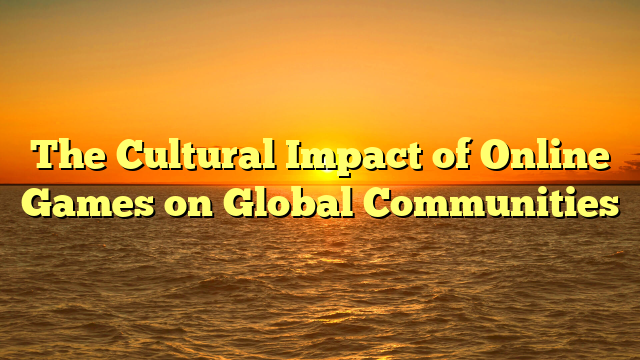Online games have grown far beyond their original purpose as digital entertainment. Today, they play a central role in shaping global culture, connecting people Pokemon787 login across borders, and influencing how communities interact. From early text-based multiplayer adventures to modern virtual worlds populated by millions, online games have become a shared cultural space where ideas, creativity, and human relationships evolve.
During the early internet era, online games were niche activities enjoyed by small groups of enthusiasts. Titles like MUD1 and Habitat fostered the first online communities, where players collaborated, shared stories, and created social rules. These small early groups laid the foundation for gaming culture, forming bonds through typed conversations and communal goals. Over time, as technology improved, these communities expanded dramatically.
The 2000s marked a significant transformation as massively multiplayer online role-playing games (MMORPGs) rose in popularity. World of Warcraft, RuneScape, and MapleStory became cultural landmarks, attracting millions of players who spent years building friendships, rivalries, and digital identities. The sense of belonging within guilds and clans demonstrated that online games could create genuine social bonds as strong as those formed offline. Shared experiences—such as raids, quests, and in-game celebrations—became cultural rituals for players worldwide.
As social media and streaming emerged, online gaming culture became even more influential. Platforms like Twitch and YouTube allowed players to share their gameplay, humor, and personal stories with global audiences. This gave rise to gaming influencers, esports personalities, and content creators who now shape trends, fashion, language, and even humor. Terms originating from games—such as “GG,” “noob,” and “meta”—entered mainstream online conversations.
Online games also embraced cultural diversity. Titles like Genshin Impact, Free Fire, and PUBG Mobile gained global popularity, creating shared entertainment across different regions and languages. Events like Fortnite’s virtual concerts demonstrated how online games can serve as digital stages for global culture, blending music, film, and social interaction into a single experience.
Today, online gaming is intertwined with everyday life. Players form friendships across countries, celebrate holidays in digital worlds, and participate in online events that mirror real-life traditions. Games also serve as educational spaces, social hubs, and platforms for self-expression. Digital fashion, virtual photography, and in-game storytelling have become creative outlets for millions.
The cultural impact of online games is now impossible to ignore. They connect people, foster creativity, and shape global culture in ways that were unimaginable decades ago. As virtual worlds evolve and blend with real-life experiences, online games will continue to be a powerful force influencing how communities communicate, celebrate, and grow.
